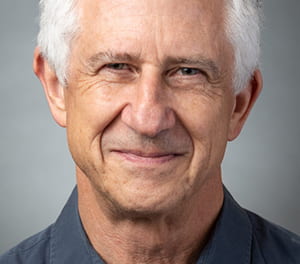
A Researcher’s View of Culture Change
By Lynn Lipinski
If there’s one thing USC has going for it as it embarks on a journey of culture change, it’s that its community of faculty, staff, students and alumni care deeply about its mission. It’s a strength that Paul S. Adler, a professor at the USC Marshall School of Business, believes will help the university through this multi-year process.
Adler should know, as he’s dedicated his research to the business of organization — and reorganization — design. And he’s just taken on a new role as co-chair of the Working Group on University Culture.
That commitment to USC’s mission, he said, is a huge asset. People who work at USC are not just doing it to pay the rent. For many at the university, a belief in higher education and the goal of transforming people’s lives through education and research keeps them coming back every day, year after year.
Research Into Lasting Change
Adler is optimistic about USC’s prospects for change because of his research into how big organizations mobilize people toward new goals successfully.
The research — which includes Adler co-authoring a 2009 book about organizational change at Kaiser Permanente, one of the nation’s largest not-for-profit health plans — identifies high-level concerns that can make real change elusive.
Broadly speaking, lasting change arises from three factors: motivation, process and ability. According to Adler, USC is on track with all three. High levels of motivation to engage can be found at all levels of the university, and that’s a good thing.
As for process, Adler said the aim is to create a method where people can effectively engage in the work to be done around culture. “We’re putting into place a process that will bring the right people together, around the right issues and in the right ways, over the coming year or so,” he said.
Similarly, efforts to ensure that community members have the ability to make and sustain changes are underway.
“I see serious commitment toward giving people the facilitation and management skills and tools they’ll need to make a difference,” he said.
Structural Issues
One challenge to overcome will be something that is also considered to be one of the university’s strengths: its decentralization. The university — with its medical center, 21 schools and dozens of departments — allows each of those units to run autonomously. The schools operate independently of each other and of the central administration.
“A number of people see intuitively that the university’s decentralized administrative and budget systems form a fairly serious impediment to the work ahead of us,” Adler said.
He shares that view but also sees the culture-change initiative as a step toward transforming that structure. “It’s hard to imagine that we’ll make much progress on these culture issues without modifying that highly decentralized, federated model,” he said.
One approach that has worked for other organizations is creating accountability not just for results but also for how they are achieved. The intent? To counterbalance the autonomy that has served USC well in some ways with a degree of accountability for process as well as outcomes.
“I think part of our work is to build these new overlay systems and structures. In some cases, it may just be a matter of creating room for more or different groups of people discussing how schools or units are operating,” he said.
Forums — like the one held in March 2019 by faculty, staff and student organizations — may be one answer.
“People are going to have to get comfortable sitting in more of these multi-level forums where the way they achieve results is under scrutiny just as much as the results themselves,” Adler said.
A New Way of Thinking
People say that changing culture takes time, often many years. Adler made a finer point: it’s not culture change itself that takes so long, it’s the complexity involved in changing broad organizational structures, systems and procedures.
“There’s nothing so mysterious about culture change that requires it to take a long time,” he said.
He recalled the poor-performing General Motors plant in Northern California that was reopened as a joint venture between GM and Toyota in 1984. In that case, Toyota took over management of the plant, transforming one of GM’s worst plants in terms of quality, productivity, absenteeism and worker safety into the second-most efficient plant in their organization in under a year, using the same employees but hiring an all-new management team.
It’s a dramatic story that’s not replicable for complex organizations like USC. But it does underscore Adler’s point that culture change itself isn’t what takes so long — without a dramatic Toyota-like intervention — it is the complex underlying modifications.
USC is a complicated organization with many layers and units, and its culture is a reflection of all of the university’s facets: the schools and units and all the processes that go into hiring, promotion, how work is done, how decisions are made and what people are rewarded for doing.
All of those “managerial systems and procedures need changing if we really want to sustain the new values that we aspire to,” Adler said.
The culture-change journey can be a time to question and rethink the way things are done across the university. It can even be a time to rethink what it means to be in the Trojan family.
While the best traits of a family are that we share responsibilities, make decisions together and trust one another, it can also require a strong sense of loyalty that may not make sense as the main value for a complex community like USC.
“People need to feel they can challenge others who are stepping out of line, rather than to feel that they must be loyal at all costs,” Adler said. “In a community like ours, people need to feel like their concerns will be heard. I think people are optimistic now that leaders are paying attention.”